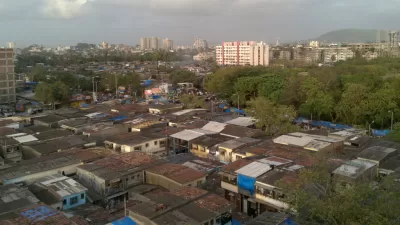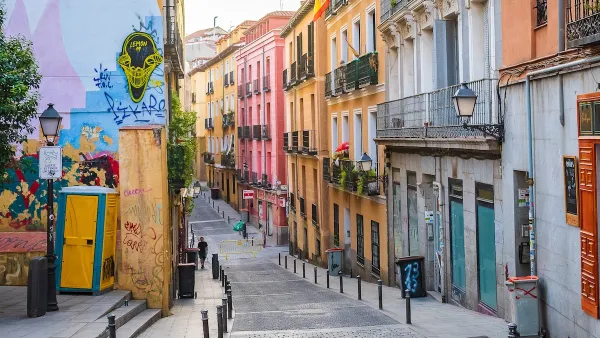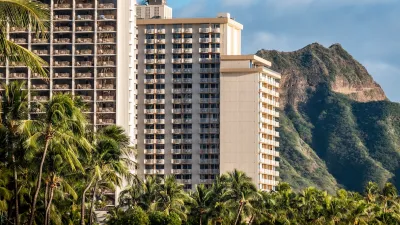Richard Florida argues that policies in cities around the world are making it harder on those most in need of housing.

When people live in slums, the way to improve their lives is to empower the people living there rather than to attack the slums themselves. Richard Florida argues that when cities try to move or destroy slums and replace them with large-scale projects, they're attacking a symptom of the housing crisis and making the root problems worse. "When residents are displaced or relocated, they are disconnected from critical social and economic networks and livelihood options they themselves created," Florida argues in CityLab.
Slums don't occur at random. When slums develop near cities, it's because the residents know they’ll have access to the economies and infrastructure resources they need.
Florida argues there are policies to help the people directly: "One way to do this is to convert underutilized urban land for affordable housing and economic development, with realistic standards for development." Another is to build infrastructure for the people who live in slums.
"The city of Medellin in Colombia famously did this by using escalators and gondolas to connect steep hillside slums to centers of jobs and economic activity," Florida writes.
FULL STORY: How Cities Are Making the Global Housing Crisis Worse

Planetizen Federal Action Tracker
A weekly monitor of how Trump’s orders and actions are impacting planners and planning in America.

Chicago’s Ghost Rails
Just beneath the surface of the modern city lie the remnants of its expansive early 20th-century streetcar system.

San Antonio and Austin are Fusing Into one Massive Megaregion
The region spanning the two central Texas cities is growing fast, posing challenges for local infrastructure and water supplies.

Since Zion's Shuttles Went Electric “The Smog is Gone”
Visitors to Zion National Park can enjoy the canyon via the nation’s first fully electric park shuttle system.

Trump Distributing DOT Safety Funds at 1/10 Rate of Biden
Funds for Safe Streets and other transportation safety and equity programs are being held up by administrative reviews and conflicts with the Trump administration’s priorities.

German Cities Subsidize Taxis for Women Amid Wave of Violence
Free or low-cost taxi rides can help women navigate cities more safely, but critics say the programs don't address the root causes of violence against women.
Urban Design for Planners 1: Software Tools
This six-course series explores essential urban design concepts using open source software and equips planners with the tools they need to participate fully in the urban design process.
Planning for Universal Design
Learn the tools for implementing Universal Design in planning regulations.
planning NEXT
Appalachian Highlands Housing Partners
Mpact (founded as Rail~Volution)
City of Camden Redevelopment Agency
City of Astoria
City of Portland
City of Laramie





























